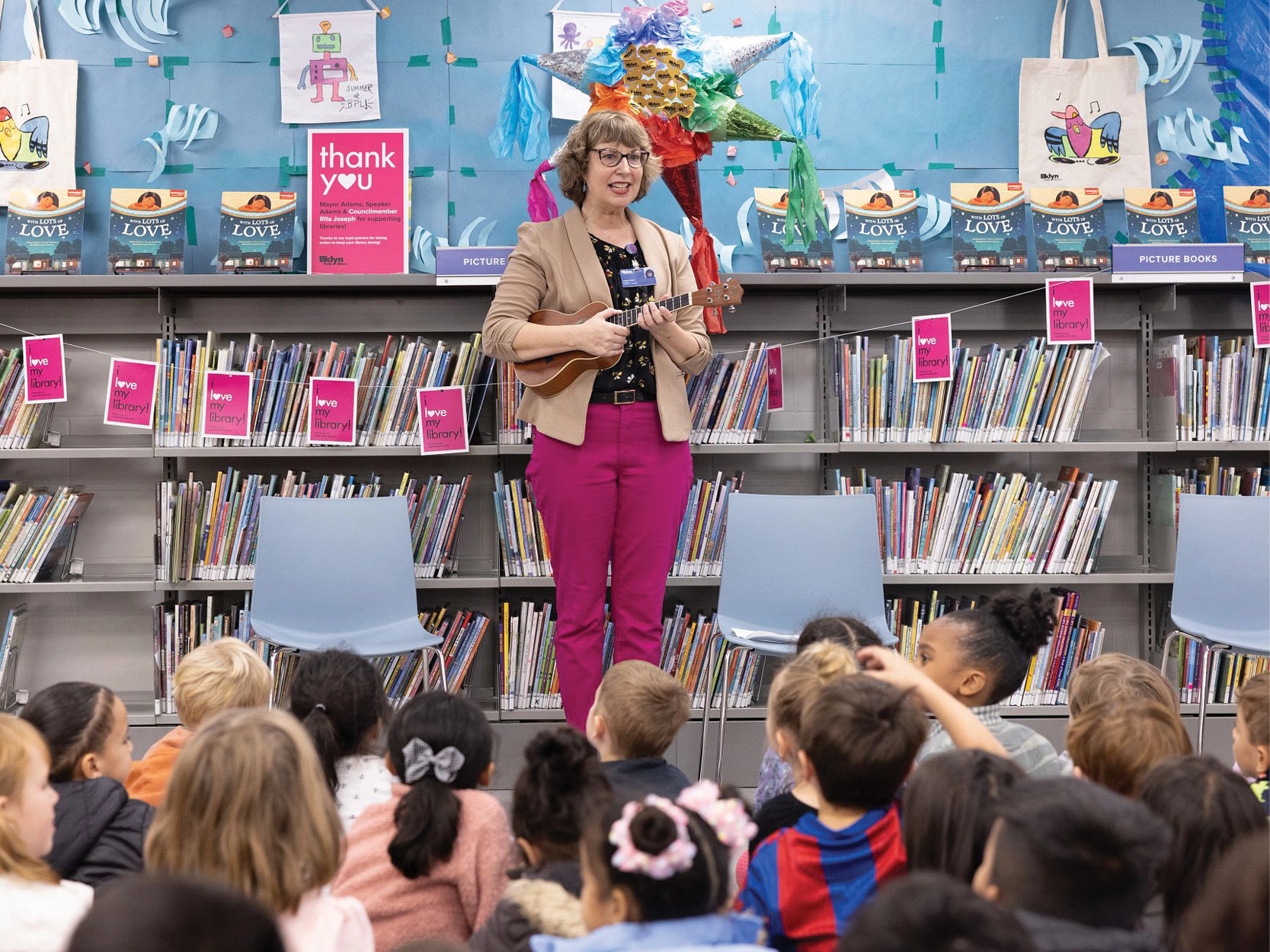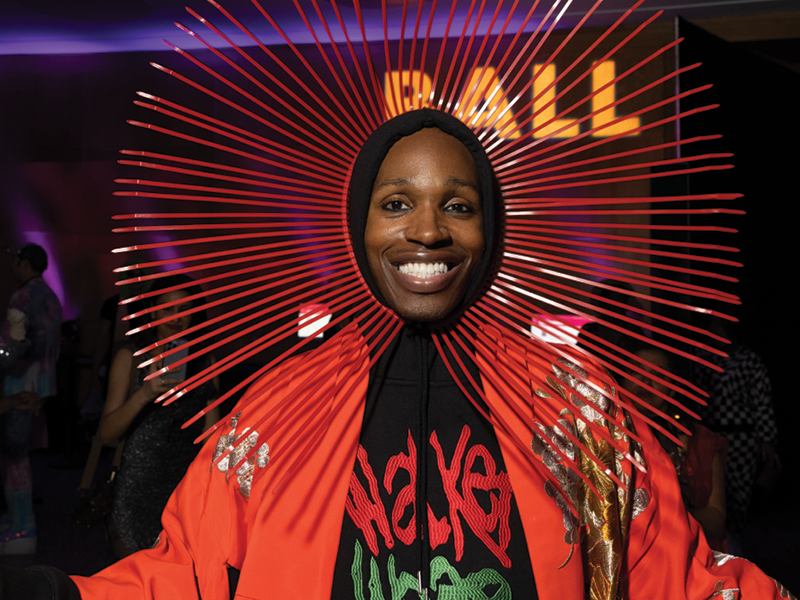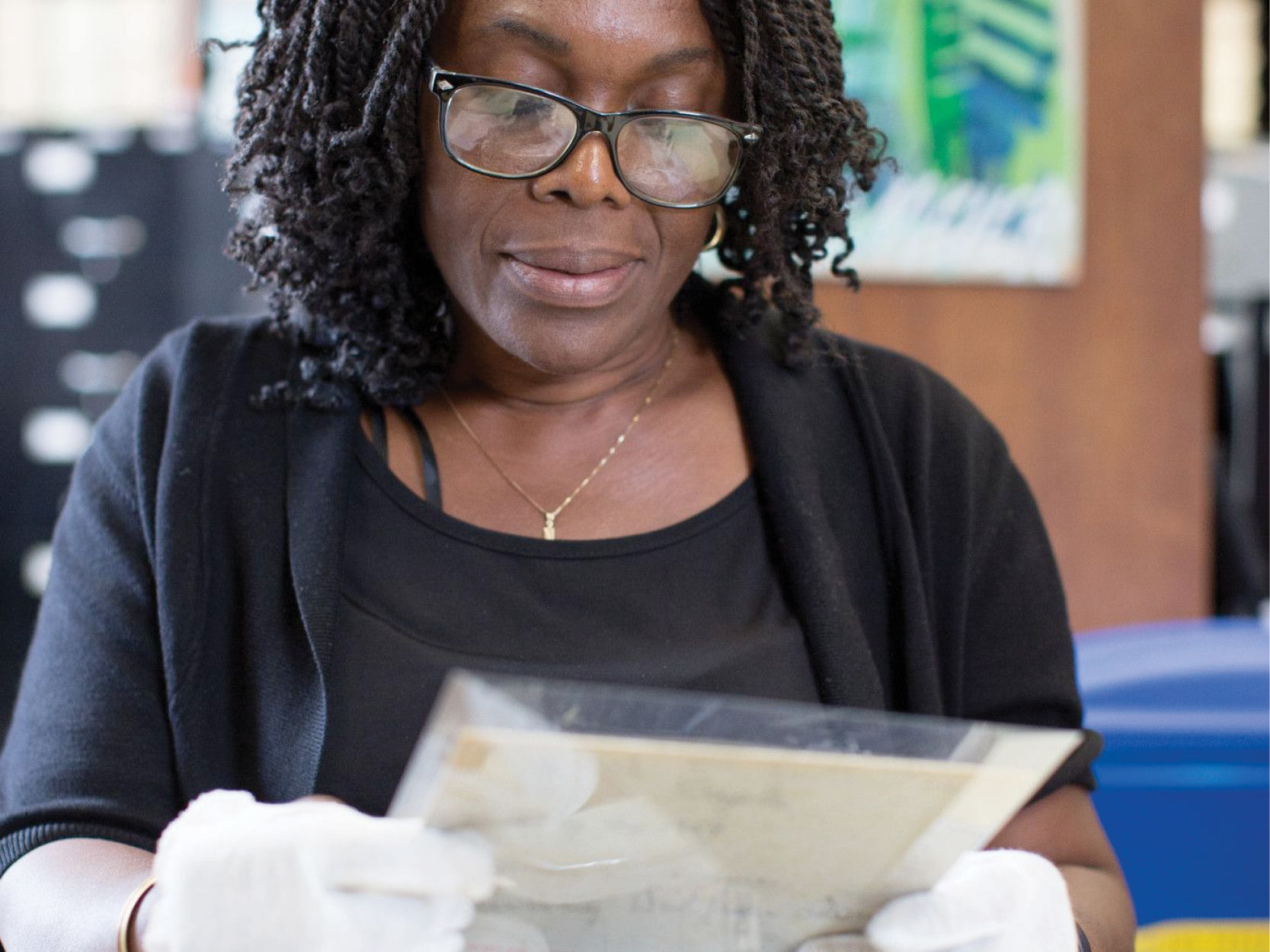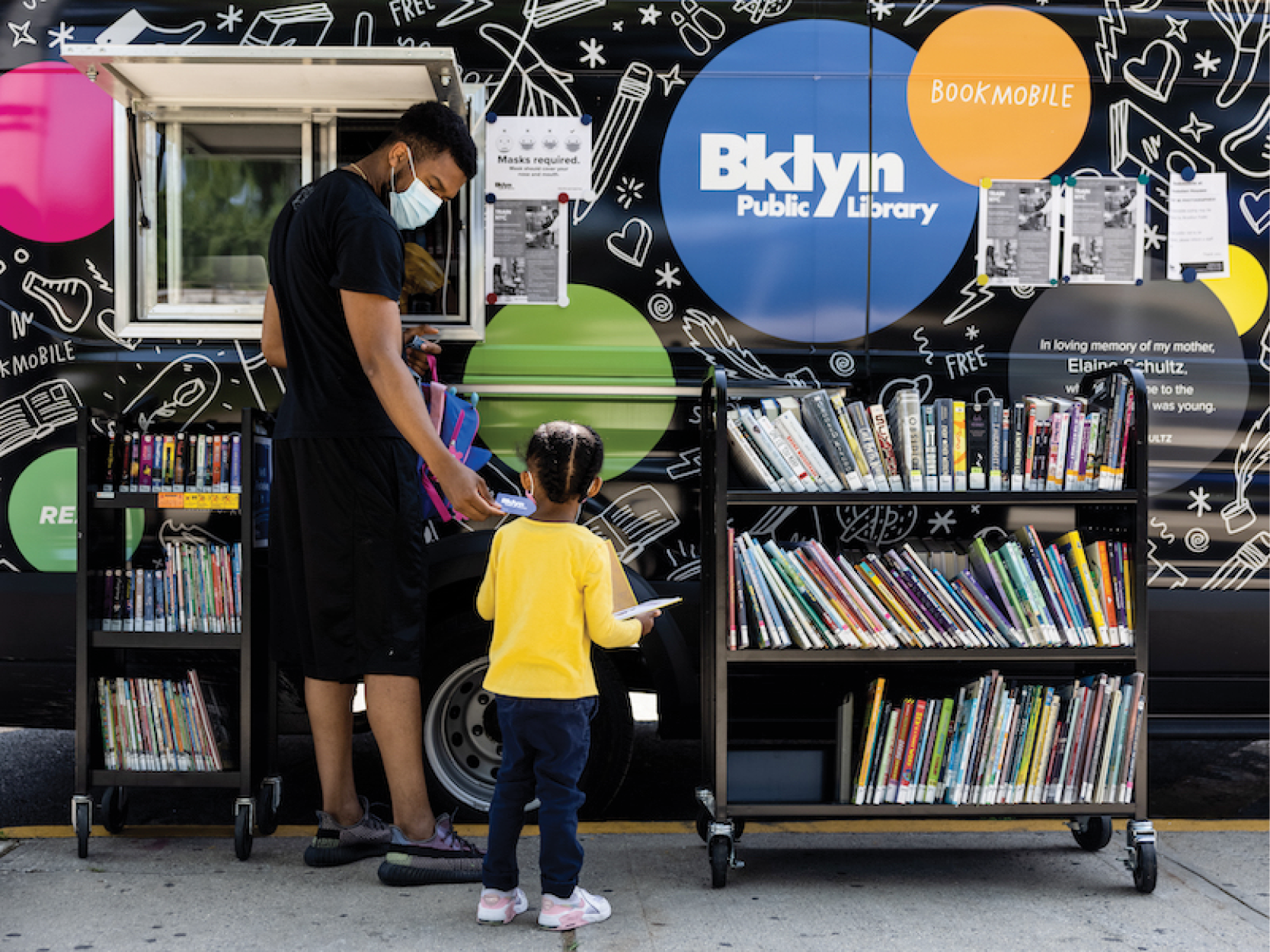I’m always excited when an author agrees to participate in an interview for Off the Shelf, so when Max Gross, author of rave-reviewed The Lost Shtetl, agreed to sit for an interview and join the New Utrecht branch for a discussion of his debut novel, let’s just say I was exceedingly happy.
Gross’s book is an attentively crafted thought experiment on what might happen if a Polish shtetl slipped away from the outside world, unwittingly escaped the Nazi’s warpath, then collided with modern society. The catalyst for this “lost'' shtetl's reconnection with the modern world? The suspected murder of a young woman. Yankel, the social outcast deemed most dispensable by his tribe, is sent into the woods to hopefully find the gentile authorities and report the crime. Though he finds the gentiles, I can’t say he finds anything resembling due process. Yankel is instead walloped by modern society, its healthcare system, romance, and the devastating fact of the Holocaust.
 In the style of a Yiddish folktale, Gross plumbs the depths of human emotion through his vibrant characters, his richly wrought worlds, and his examination of a singular circumstance. I found the story at times hilarious, profound, shocking, and genuinely original. I’m not the only one who enjoyed the story; Kirkus and Publishers Weekly gave their coveted starred reviews to The Lost Shtetl.
In the style of a Yiddish folktale, Gross plumbs the depths of human emotion through his vibrant characters, his richly wrought worlds, and his examination of a singular circumstance. I found the story at times hilarious, profound, shocking, and genuinely original. I’m not the only one who enjoyed the story; Kirkus and Publishers Weekly gave their coveted starred reviews to The Lost Shtetl.
In this interview, Gross reveals—with amiable candor—his inspiration, the shtetl’s Brooklyn connections, and why he could never leave New York’s modern urbanity.
Off the Shelf (OtS): As someone who grew up in Brooklyn, and a child of two writers, no less, do you have any memories of visiting Brooklyn Public Library?
Max Gross (MG): Oh, indeed! I went to Saint Ann’s school on Pierrepont Street, and just down the block was the [Brooklyn Heights branch]. Of course, St. Ann’s had a couple of pretty stellar libraries in the schoolhouse; there was the lower school library where I remember sitting and listening to the librarian read chapter books like Half Magic and The Hobbit... and then there was the upper school library, which is where I wound up spending a massive chunk of my school years reading everything from Ray Bradbury to Crime and Punishment. But I still went to BPL all the time. I remember school being very insistent that one of the most valuable things for a kid to get was a library card, and for a while I was taking out quite a number of books. But, then, the fines started racking up… (Note from OtS: Don’t worry, BPL is now fine free!)
OtS: The Lost Shtetl takes a look at two very different worlds colliding: the modern urban world and an insular Jewish community. To some degree, both of these worlds exist side-by-side in Brooklyn. Did Brooklyn inspire any parts of your story?
MG: There were a couple of things [that ispired the book], and one was the realization that people living in Borough Park and South Williamsburg were living in their own little shtetls! One of my first jobs in journalism was at the Forward newspaper, and I would often do stories from the far reaches of Brooklyn and its orthodoxy, and it was something that stayed with me for a long time thereafter. And I began learning the schisms and feuds that were a big part of The Lost Shtetl. The Satmars of Borough Park is a far cry from the Lubatichers of Crown Heights. Their similarities and differences I found fascinating.
OtS: You described the shtetl so richly, with many characters, relationships, and a long history. Are you personally familiar with insular Jewish communities?
MG: Only as a spectator, really. I grew up in a totally secular environment in Brooklyn. I would say you don’t go to a school called Saint Ann’s if you’re orthodox, but there actually were a few orthodox kids in my class, and half the student body was partially or fully Jewish. But I started feeling the pull towards my Judaism the farther I got from Brooklyn. I went to Dartmouth College in the middle of the New Hampshire wilderness, which was about the most non-Jewish college a person could attend. So I sought out my fellow Jews. I would go to Shabbat dinners at Hillel—something I never did back in Brooklyn. And then after college I decided to spend a year in Israel at the Arad Arts Project, a (sadly defunct) program in the Negev desert, where I began getting closer to a much more religious life than I ever knew before. I didn’t become religious, per se, but I became fascinated. When I returned to New York I took a job at the Forward writing about Jews and I saw a lot more of those communities up close. I started making friends with people who grew up in that world.
OtS: You explored the Holocaust in a very unique way. It is central to the plot but, for the people of Kreskol, it also never happened. What motivated you to look at this moment in history from this angle?
MG: I’ve spent a lot of years meditating about the Holocaust as the central event of modern history, at least in my mind. But the idea that this event, which profoundly changed the world, would have been obliviously skipped by a whole town full of people seemed to me a chance to examine why I thought it was such a watershed moment in history. To borrow a Passoverism, “Why is this tragedy different from all other tragedies?” Coming to it with the innocent eyes of Kreskolites, I thought I could try to explain something about that.
OtS: While Kreskol is far from perfect, it has its unique appeal. Do you ever fantasize about leaving New York City for a small, rural community?
MG: I’ve done it once when I went to college, and after when I went to Arad (a small town in Israel) for a year. However, I’m a pretty urban fellow who relishes his Chinese restaurants and pizza parlors (good pizza, not New Hampshire pizza). For a long time I didn’t even know how to drive, but I got reasonably competent during the pandemic. Like a lot of writers I have fantasized about locking myself away in some cabin somewhere and writing for the rest of my life. I don’t think it would be so bad if my wife and son could have the adjoining cabin. But I also think that there is great solitude in a city. Even though it gets more and more unaffordable with every passing year, New York is still filled with the Greenwich Village cranks that I knew and identified with as a kid. A kind of sultriness. A kind of energy. In the end, I don’t think I could ever fully leave. Was it Fran Lebowitz who said she can’t escape thinking that people who don’t live in New York are “faking” it?

OtS: At one point in your book, you compare Kreskol with Brigadoon, the magical Scottish village that appears out of the ether every 100 years. Is there a magical, Brigadoon element to Kreskol that helped keep it hidden at such a crucial time in history?
MG: I always thought the book was a piece of magical realism, but the word “realism” is important. The story of how Kreskol avoids the Holocaust might be difficult to believe, but it has the sheen of credibility. It’s not straight up enchantment. It’s an unlikely but still plausible series of events.
OtS: I hear there’s rumor of a sequel. Can you say if we’ll be reuniting with some of The Lost Shtetl’s main characters, or following the paths of new ones?
MG: It’s come up. I’ve thought of a story and what to do with some of the characters. But it’s not going to be the next thing I write. I’m on a hiatus from Kreskol for now.
OtS: Is there anything else you’d like to say about your story?
MG: Did you mean my personal story, or about The Lost Shtetl? If we’re talking my personal story, I would just say that Brooklyn was a real lodestar for me and my life. Brooklyn and books. So if I may be allowed a small bit of flattery, it is a real honor for me to speak to BPL. As for The Lost Shtetl story, it was something that I spent a lot of time on, and I’ve been extremely gratified that a lot of readers enjoyed it. I implore anyone reading this to go down to Brooklyn Public Library and check out the book. And if you really like it, it makes for a great gift!
This blog post reflects the opinions of the author and does not necessarily represent the views of Brooklyn Public Library.
My wife and I were convinced
Post a Comment
While BPL encourages an open forum, posts and comments are moderated by library staff. BPL reserves the right, within its sole discretion, not to post and to remove submissions or comments that are unlawful or violate this policy. While comments will not be edited by BPL personnel, a comment may be deleted if it violates our comment policy.
eNews Signup
Get the latest updates from BPL and be the first to know about new programs, author talks, exciting events and opportunities to support your local library.







